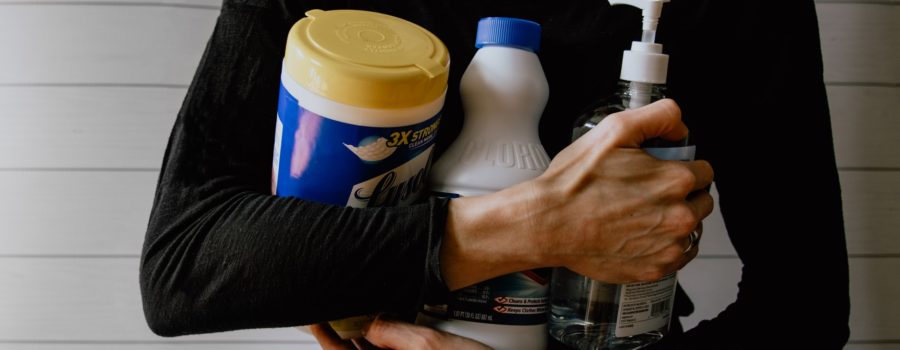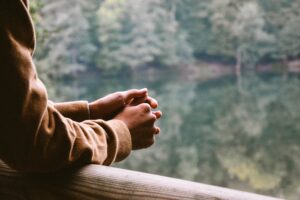By Theresa Brown, Marriage and Family Therapist Trainee at West Valley Counseling Center
What is OCD? Obsessive-compulsive disorder (OCD) includes intrusive thoughts, images, or urges alongside behaviors aimed at reducing the uncomfortable obsessions. Perhaps you’ve seen the stereotype of someone doing an action multiple times, like flipping a switch five times. It’s important to remember stereotypes are not accurate representations of people or mental health problems. Contamination is one of the most common types of OCD, in which a person experiences intrusive thoughts, images, or urges related to germs and contamination, paired with behaviors, such as cleaning for a prolonged period of time, to try to get rid of the discomfort.
This pandemic has caused an uncertain and scary time, and it can be helpful to open our eyes to all of the different ways people are being impacted. I have OCD and I have an extreme fear of germs that can lead to harm or death. A pandemic is my biggest fear, and now I’m facing it every day.
Living with OCD day-by-day
I’ve remained calm by taking the situation day-by-day. It’s difficult to touch the doorknob on my front door for fear that germs from the outside have infiltrated my home. It’s difficult to touch the food I bought from the grocery store without cleaning my entire kitchen after. It’s difficult to wash my hands and not count or set a timer. It’s difficult to get out of bed in the morning when I know that I have to clean when I get up. It’s difficult to touch a pen from my purse without wiping it down with alcohol. It’s difficult to co-exist with someone who thinks differently than me, not understanding why after they touch something with “dirty” hands, they must clean that area of the house and wash their hands (in a perfect OCD world, they would take a shower). It’s difficult to constantly apologize and feel shame and guilt over the anger I expressed because inside I was really scared, scared of being harmed and of harming others.
Having OCD is difficult for people, and the effects ripple out to the other relationships and areas of their lives. Partners, children, extended family, classmates, coworkers, roommates… Work, school, the gym, your favorite café, public restrooms, hiking… My experience during this pandemic has consisted of a lot of fear and anxiety and. surprisingly, some joy, relaxation, and motivation, too.
We’re in this together
I want to acknowledge this profound time of shared human experience and, specifically, the shared grief many of us are feeling. We are grieving people, jobs, homes, relationships, plans, and ideas of what we thought this year would be like. Grief is uncomfortable and deep, and we all want to get through it. However, to move past grief, we must feel it first. What are some things you have lost during this time? Personally, I have lost physical connection and time with people. I lost the end of graduate school with my cohort and our graduation, I lost a planned trip to teach English in Italy, and I lost any sense of safety I thought my OCD was providing me.
Living with OCD is difficult in general. Adding a pandemic can make the situation seem overwhelming and unmanageable. However, people have developed OCD as a way to cope with a significant stressor. I’ve been told multiple times that I’m lucky to have OCD right now because it has served me to have a clean home and already be prepared with cleaning supplies. I thought perhaps there are some silver linings to this pandemic.
Finding the silver linings
One silver lining, for me, is having time for self-care. Self-care means to do free, accessible activities that bring you joy. I have been able to exercise, work on sleep hygiene, practice getting out of bed and not cleaning first, and reflect on my relationships with loved ones and how my OCD has affected them. I have let go of some of my urges to control, and accepted living in the gray.
People commonly think and try to live in black-and-white, and they get flustered when they find that life is gray, unclear, uncertain, and uncontrollable. Practicing letting go and accepting has allowed me to relinquish some of the anxiety I was holding onto that I thought was keeping me safe. I have realized that even if I let it go, I am still safe. While OCD has helped me stay hygienic and safe during this time, I have found that this pandemic has pushed me to face my fears and challenge my OCD.
This is a time to care for each other and be empathetic, as we have all been affected in different ways. Perhaps the next time you see a loved once struggling with OCD, consider letting them know they are safe and loved. Love, support, empathy, and understanding from friends and family has helped me thrive during this pandemic, while living with and challenging my OCD.
PS: I cannot wait to go outside and hug someone when the pandemic subsides!
If you’re living with OCD or another mental health condition, we’re here to support you. Our dedicated team of therapists is offering telehealth therapy so you can talk with us via video call, keeping you safe at home. Get in touch with us today!





